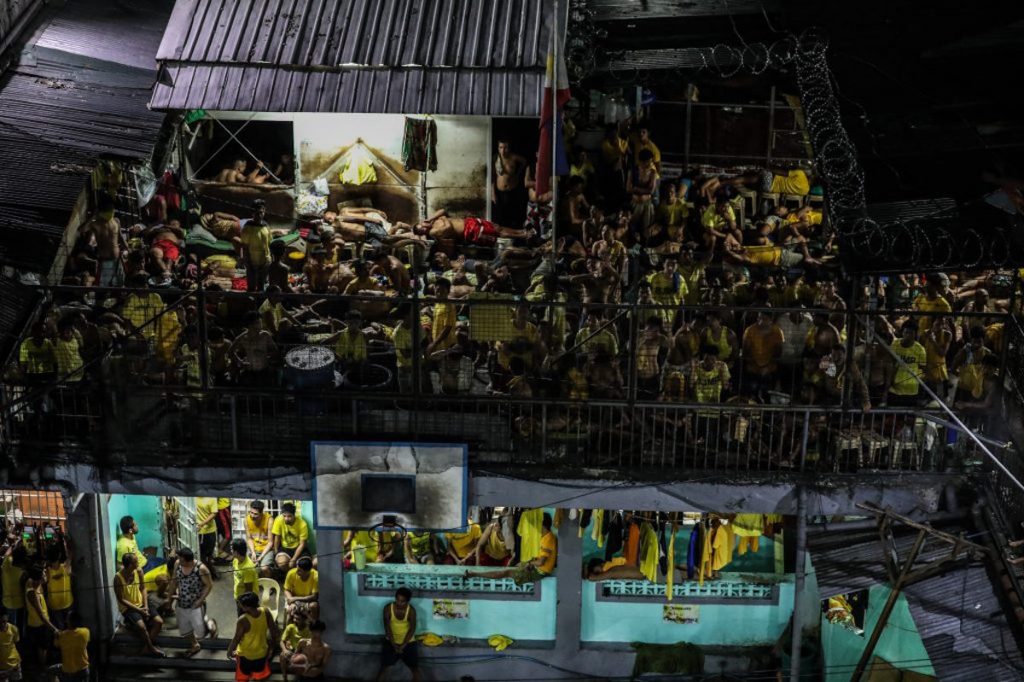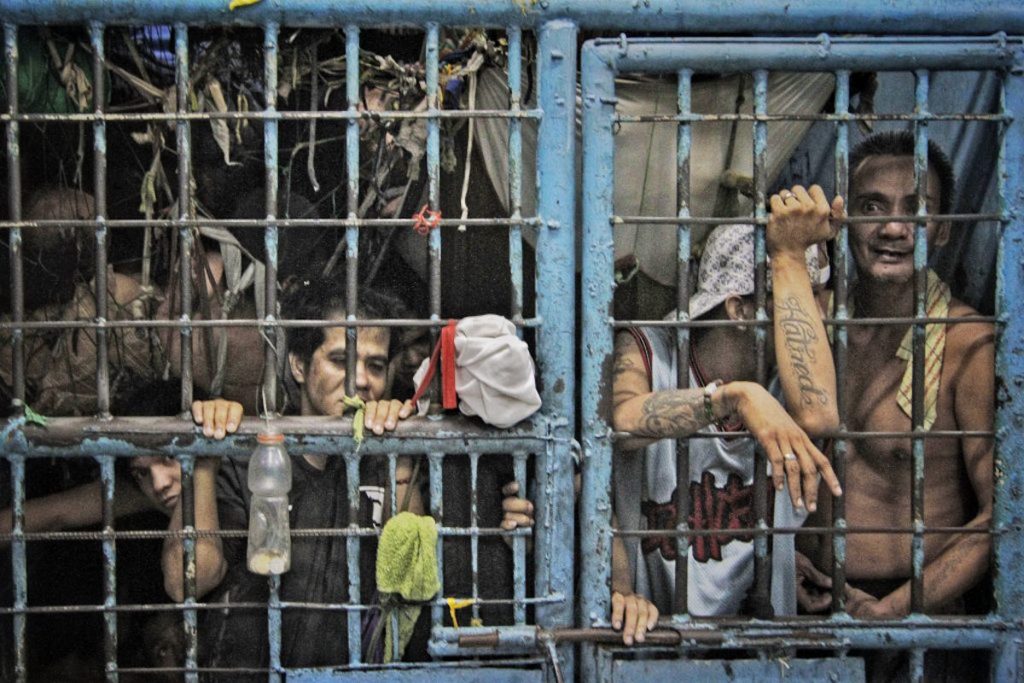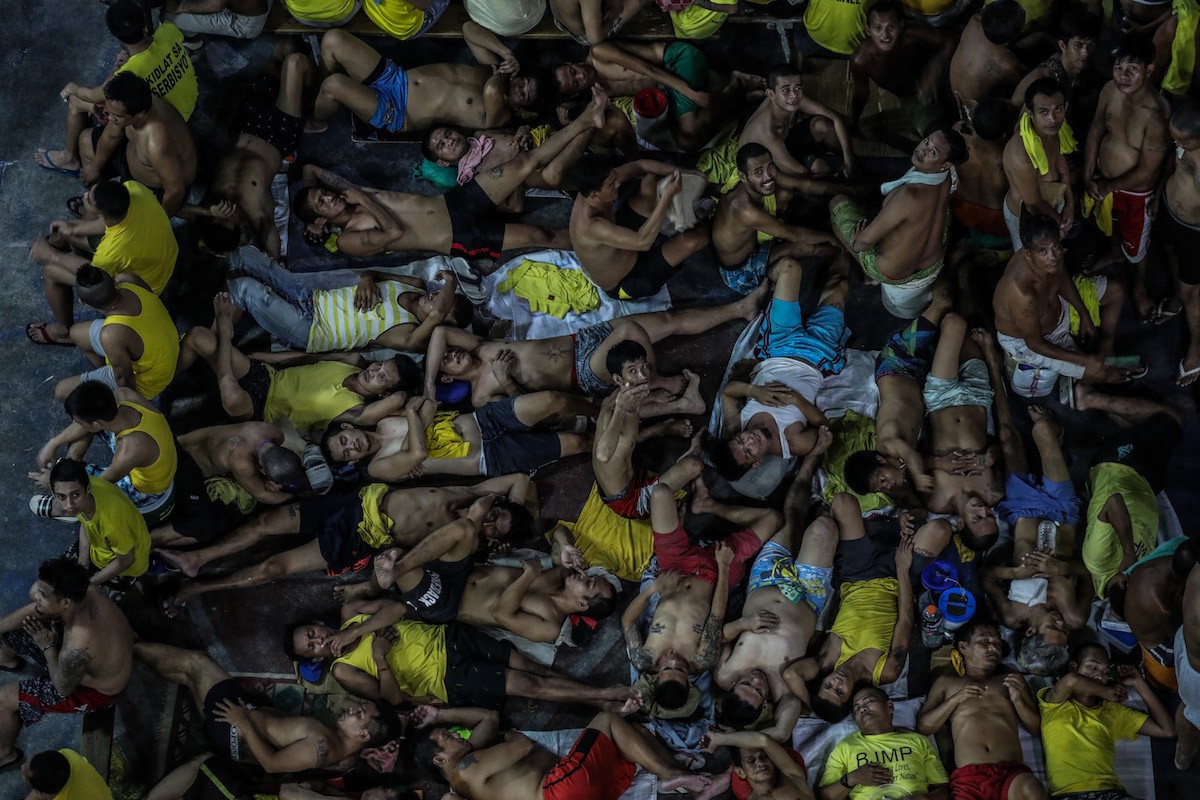A Catholic bishop in the Philippines has blasted the “inhuman conditions” in the country’s jails and prisons.
Bishop Broderick Pabillo, apostolic administrator of the Archdiocese of Manila, described the situation as “saddening and infuriating” as Filipino Catholics marked Prison Awareness Sunday.
“[Prisons] have no basic services, dirty, compressed, and (detainees) are exploited,” said the prelate on Oct. 25. “These should be rehabilitation facilities, but people there are not rehabilitated at all,” he said.
“There is very little program for rehabilitation,” he added as he appealed to the faithful to pay attention to those in prison, especially in the midst of the coronavirus pandemic.
“They are also our fellow human beings whom we should give attention to and care for,” he said.
“They need our help. They appreciate very much even a bar of soap or toothpaste,” added the prelate.
He said many of those in prison “are there because they are victims of injustice.”
“Many of them are poor and are wrongfully accused,” he said, adding that “political prisoners are a case in point.”
“There are hundreds of prisoners who are there because of their political beliefs and they are victims of injustice done by law enforcers who plant evidences and make cases against them,” said the bishop.
Human rights groups claimed that there are at least 609 political prisoners currently detained in various jails across the country, at least 63 of whom are considered sickly while 47 are elderly.

Call for measures to ease congestion
A faith-based volunteer group on Oct. 25 called for concerted efforts to help ease the “deplorable” congestion in the country’s jails and prisons.
The Volunteers in Prison Service (VIPS) said measures to avoid COVID-19 infection among persons deprived of liberty might not be enough to prevent the spread of the disease.
“How can [prisoners] follow social distancing if they are congested?” said Gerry Bernabe, national coordinator of VIPS, a program under the Episcopal Commission on Prison Pastoral Care of the bishops’ conference.
Congestion rate in the country’s prisons is now at more than 500 percent, making jail facilities hotbeds for infection.
Bernabe said there is no other choice but to decongest jails by reviewing the cases of inmates and by releasing those who committed minor offenses or those whose cases can be bailed.
“Some court hearings have been suspended because of the situation. So you can just imagine, they are putting more people to prison but no one is getting out,” Bernabe added.
The Commission on Human Rights is also pressing for the demographic reduction in prisons.
Lawyer Jacqueline Ann de Guia, spokesperson of the commission, said pardons and clemencies “should be granted fairly based on objective and compassionate grounds.”
Impact of pandemic
The Bureau of Jail Management and Penology announced in March the temporary suspension of jail visits, which Bernabe said might have negative impacts on detainees.
Having no visitors means less food supply that might cause inmates lose their temper, he said, adding that a few weeks ago, a riot ensued at the New Bilibid Prisons, resulting in nine fatalities.
“Maybe there was a minor incident that triggered the riot. I believe this is one of the effects of boredom inside the jail,” said Bernabe.

While VIPS is doing its best to continue with its mission despite the challenges brought by the pandemic, its volunteers are “used to being hands on.”
“We go inside, talk to the inmates, and get to know them and their problems,” he added.
These days, however, the volunteers, many of whom are elderly, have to learn to use apps and other online strategies to reach out to inmates.
The theme of this year’s Prison Awareness Week is “Restoring Hope and Healing during this Time of the Pandemic through God’s Transforming Unconditional Love.”
Bernabe said most people believe that inmates deserve to stay in jail because they are criminals, but they are hoping to change this mindset.
“The real essence of correction is really healing, not punishment,” he said.
The National Prison Awareness Week is commemorated annually to remind Filipinos to pay attention to the situation of prisoners in the country.
Jaimie Aberia contributed to this report.







